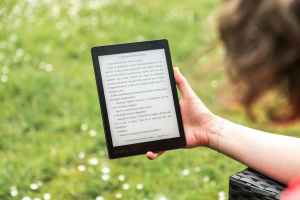ChatGPT and Literature: A Brave New World of AI-Generated Stories
Introduction: The Rise of ChatGPT and Its Impact on Literature
In 2022, the world witnessed the remarkable emergence of ChatGPT, an AI chatbot that took the internet by storm. With its ability to generate coherent and grammatically sound text in a matter of seconds, ChatGPT sparked concerns about its potential impact on various industries, including literature. The question on everyone’s mind was: how would this easy-to-use AI chatbot affect the creative writing industry?
Rie Kudan’s Novel and the Use of Generative AI
In a bold move that sent shockwaves through the literary world, Japanese author Rie Kudan, winner of the prestigious Akutagawa Prize, acknowledged the influence of ChatGPT on her latest novel, “Tokyo-to Dojo-to.” Kudan openly admitted that approximately 5% of her novel was written verbatim using sentences generated by ChatGPT. She revealed that she actively employed generative AI during the writing process, even incorporating AI-generated dialogue into her narrative.
Reactions to Kudan’s Approach to Writing
Kudan’s unorthodox approach to writing using AI ignited a firestorm of reactions on social media. Skeptics questioned the morality of using AI and debated whether it diminished the value of the prize she had won. Others, however, praised Kudan’s resourcefulness and willingness to experiment with AI prompts, recognizing the potential of this technology to enhance creativity.
ChatGPT and the Issue of Copyright Violation
The use of ChatGPT also raised potential legal issues, particularly regarding copyright infringement. Prominent authors such as John Grisham, Jodi Picoult, and George RR Martin joined forces to file a class-action lawsuit against ChatGPT creator OpenAI, alleging copyright violation. The lawsuit claims that OpenAI used their books without permission to train ChatGPT’s language models, a clear violation of copyright law.
The Future of AI and Literature
The integration of AI in literature raises profound questions about the role of human creativity and the very definition of authorship. While AI-assisted writing tools have the potential to enhance creativity and productivity, they also challenge traditional notions of originality and authenticity. The coexistence of AI and human authors requires a careful balance between technological innovation and the preservation of artistic integrity.
Conclusion: ChatGPT and the Changing Landscape of Literature
ChatGPT’s impact on literature is still unfolding, and its long-term consequences remain uncertain. The ethical and legal implications of AI-generated content need to be carefully considered as we navigate this new era of AI-assisted writing. As AI technology continues to evolve, the relationship between humans and machines in the creative process will continue to shape the future of literature.
Call to Action:
What are your thoughts on the integration of AI in literature? Do you believe AI can enhance creativity or does it pose a threat to the originality of human-generated content? Share your perspectives in the comments below.




